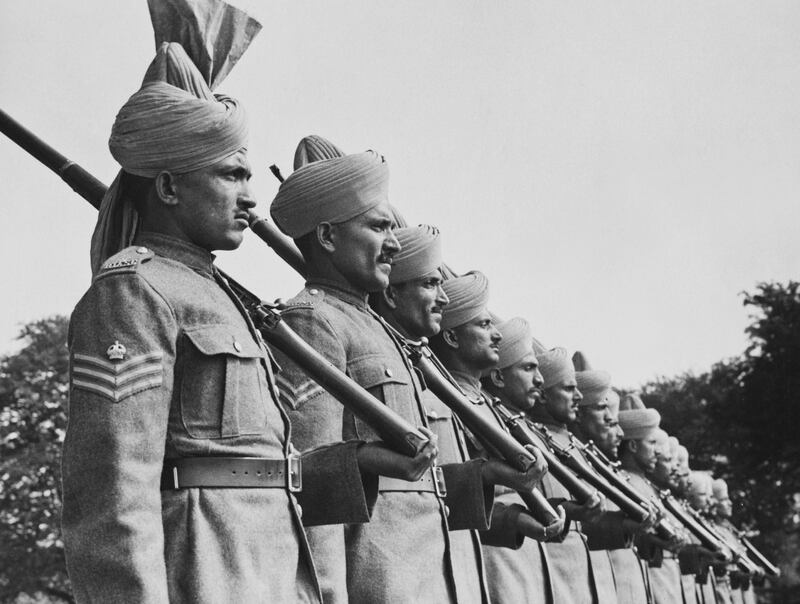Indian troops were involved in the Second World War right from the beginning.
Though fully mechanised by 1939, when the British Expeditionary Force (BEF) went to France, it became clear that the British army still needed pack animals for transport.
Four Indian Animal Transport companies – 2,500 mules and their handlers – of the Royal Indian Army Service Corps arrived in France from Bombay (now Mumbai) in December 1939 and were given the name Force K-6.
Three companies of Force K-6 were evacuated to safety from Dunkirk, but had to leave their pack mules behind, giving them away to local people in France. But the fourth company was captured by the Germans. Most of the men died in Nazi prisoner of war camps.
Historians record that during the chaos of the retreat, the Indian forces showed determination and discipline. Troop commander Jemadar Maula Dad Khan, was awarded the Indian Distinguished Service Medal for “magnificent courage, coolness and decision” when his men came under fire from both air and ground on the approach to Dunkirk in May 1940.
Read more: Debate kicks off over lack of Indian faces in Hollywood war epic 'Dunkirk'
His citation reads: “When his troop was shelled from the ground and bombed from the air by the enemy, he promptly reorganised his men and animals, got them off the road and under cover under extremely difficult conditions. It was due to this initiative and the confidence he inspired that it was possible to extricate his troop without loss in men or animals.”
Force K-6 remained in Britain for a time and in 1944 returned to India to join the Burma campaign. By then the Indian army had expanded to nearly 2.5 million men – the largest volunteer force in history.
Indian sailors – known as lascars – on merchant ships and other non-military vessels also took part in the Dunkirk evacuation, rescuing stranded soldiers.
About 5 million servicemen from the Commonwealth served with the forces of the British empire during the Second World War. Of those, almost half were from south Asia.
Despite the film’s omissions, and despite not being dubbed into any Indian language, Dunkirk took in US$2.4m (Dh8.8m) on its first weekend, making it the biggest opening of an English-language film in India.





